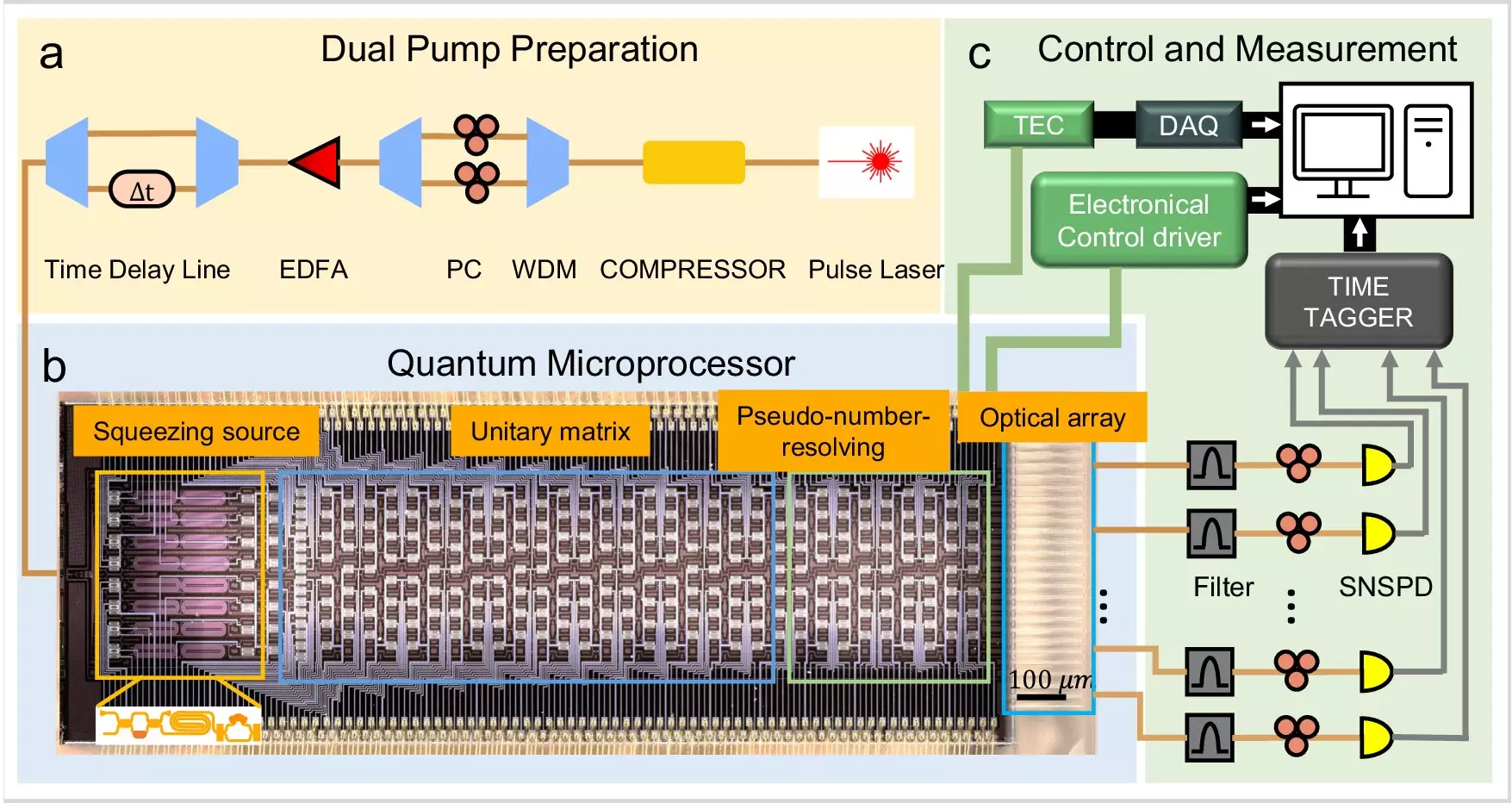Quantum simulation has opened up a realm of possibilities for scientists across various fields, enabling them to study complex systems that were previously out of reach for classical computers. One such area where quantum simulation is making a significant impact is in molecular spectroscopy, particularly in understanding molecular vibronic spectra for molecular design and analysis.
The computationally intensive nature of modeling molecular vibronic spectra has posed a significant challenge for researchers. While traditional super-computers struggle to efficiently solve these complex problems, quantum computers and algorithms have shown promise in overcoming these limitations. However, existing quantum solutions are often limited to simple molecule structures, lacking the accuracy and precision required for more complex molecules.
Researchers at The Hong Kong Polytechnic University (PolyU) have achieved a groundbreaking milestone in quantum technology by developing a quantum microprocessor chip capable of simulating molecular spectroscopy for large-structured and complex molecules. This achievement, a world-first, promises to revolutionize the way we approach quantum chemistry problems that were previously beyond the capabilities of classical computers.
Led by Professor Liu Ai-Qun, the research team at PolyU has demonstrated the practicality and efficacy of quantum microprocessor chips in molecular spectroscopy simulation. Through the integration of a 16-qubit quantum microprocessor chip into a single platform, the researchers have created a complete system that is programmable and capable of tackling complex tasks with speed and accuracy.
The implications of this research extend far beyond the realm of quantum technology, offering practical solutions for molecular docking problems and utilizing quantum machine learning techniques for graph classification. This breakthrough opens up new avenues for research and development in fields such as material science, chemistry, and condensed matter physics.
Looking ahead, Professor Liu and his team are committed to scaling up the quantum microprocessor chips to tackle even more intricate applications that could benefit society and industry. Their dedication to pushing the boundaries of quantum simulation technology underscores the transformative potential of quantum computing in addressing real-world challenges.
The development of quantum microprocessor chips for molecular spectroscopy simulation represents a significant advancement in quantum technology. By harnessing the power of quantum computing, researchers are paving the way for new discoveries and applications that were once thought to be impossible.


Leave a Reply